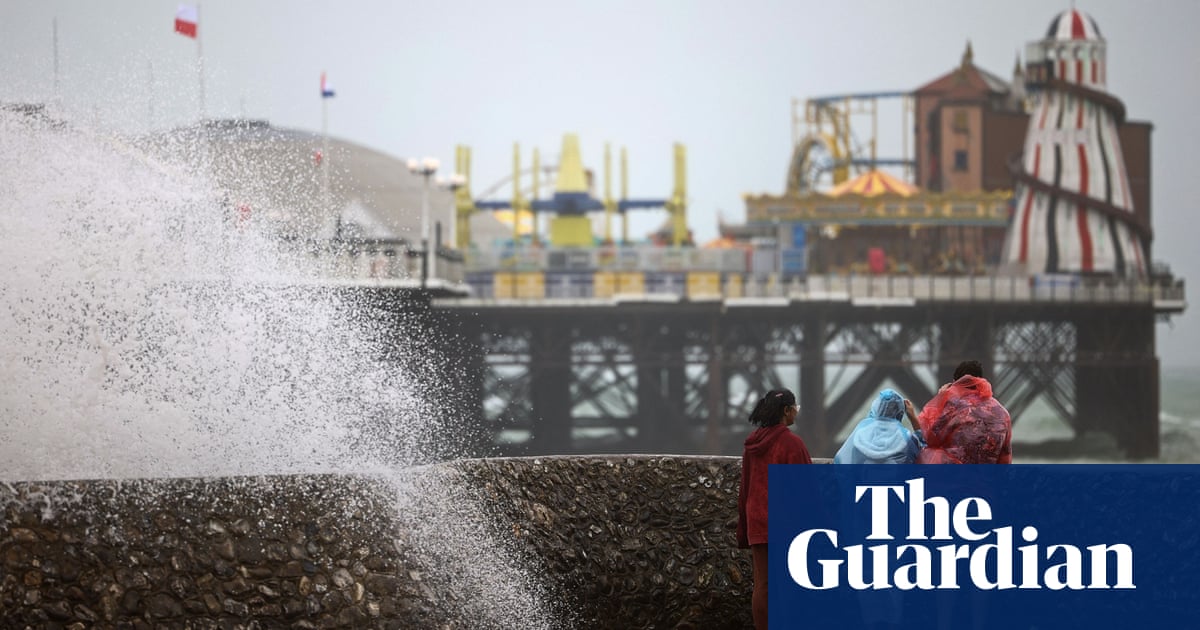
day is a long time in the pandemic. On Wednesday morning Grant Shapps’ “don’t book a trip anywhere” warning was greeted with dismay by UK tourism businesses, but by the end of the day it was clear that the public had no intention of heeding his advice: they were booking UK holidays regardless, and in droves.
Pitchup, an online platform listing 2,000 campsites, caravan parks and glampsites in the UK, ended Wednesday 47% up on the same day in 2020, and was 92% up by the end of Thursday. Beth Bailey of Premier Cottages saw “absolutely no slow down whatsoever”, while Under the Thatch, a collection of boutique cottages in Wales, said sales in the first 12 days of February were 300% up on the same period in 2020. “It’s really encouraging, and I’m heartened that whatever [the government] seems to throw at us, we can and do bounce back stronger,” said the founder, Greg Stevenson.
With bookings continuing to flow, tourism bosses, who initially feared that Shapps’ message could be another hammer blow to consumer confidence, were openly dismissing his remarks by the end of the week. “I would encourage people not to pay too much attention to it,” said Andrew Howe, the chief executive of Bridge Leisure, which operates nine holiday parks in England and Scotland. “I can’t think of a time in recent history that people have deserved a holiday more.”
Bailey said the yearning to escape had led to a “stampede” of bookings since January. “I have literally had people crying on the phone when I tell them there is no availability. They are just so desperate to get out of their four walls,” she said.
As well as a deep desire for a change of scene, another major factor driving record demand for cottages and campsites is confidence in the booking process. Virtually every hospitality business has a flexible booking policy that allows customers to postpone, in some cases up to the end of 2022, or guarantees a refund, and the cycle of cancelling and rebooking is now an accepted part of the holiday experience. “A lot of people have gone through deferring their trip and seen that there hasn’t been an issue. They are more comfortable with it now,” said Dan Yates, the founder of Pitchup.
“Consumers are wise to it now,” said Robin Hutson, the chief executive of Home Grown Hotels, in reference to Shapps’ “deeply unhelpful” comments, which directly contradicted Matt Hancock’s reassurances last month that we were heading for a “Great British summer” (though he’s since toned down his optimism). “Consumers are resigned to the fact that this is a changing situation. It’s part of the ongoing saga.”
Instead of paying attention to mixed messages from cabinet ministers, consumers and tourism businesses are waiting for Boris Johnson’s announcement on 22 February, when he is due to set out a roadmap for the end of England’s third lockdown.
“We have to have a plan,” said Alistair Handyside, the chair of the Professional Association of Self-Caterers (Pasc), whose members manage 40,000 holiday cottages. “This is what we do for a living – it’s not just a job, it’s our homes, our families, our livelihoods. The prime minister has to give a roadmap for hospitality reopening.”
With the furlough scheme and the business rates holiday due to end on 31 March and VAT increasing from 5% to 20%, businesses also want assurances that financial support will be extended if they are not allowed to reopen on 1 April, which appears likely, according to Patricia Yates, the director of strategy at Visit Britain. “Easter is early this year, so that’s gone,” she said. “Coast and countryside will have a good summer, but businesses will still have to operate under conditions to ensure social distancing and cleanliness.”
Domestic tourism is expected to generate £60bn in 2021, double the 2020 figure but still drastically short of the £91bn in 2019.
The longer holiday businesses remain closed, said Handyside, the more likely they are to increase their prices to make up for lost income. The “three winters” effect that tourism bosses refer to after losing Easter and part of summer 2020, and potentially Easter 2021, will leave many with no choice but to charge more.
A Covid-impact survey by the Great South West tourism partnership found that £3.7bn of anticipated tourism business turnover was lost in 2020 due to the pandemic. “It’s completely unsustainable,” said Handyside, who runs a cottage business in Devon as well as chairing Pasc. “The end of March/beginning of April is a cliff edge.”
As well as upping their prices, there is a danger that cottage owners may be tempted to break the law if they can’t reopen in the spring. “It’s not something I endorse but we saw it in the second lockdown when some cottages still accepted guests. When people have a choice between losing their livelihoods and survival, some will make the wrong decision.”
Until 22 February, cottage companies and hoteliers are making contingency plans based on their own timeframes. “At some point in early summer hospitality will be open,” said Hutson. “I’m convinced of that because the majority of people will have been vaccinated.”
The alternative, said Bailey, was “unthinkable … You’d lose a lot of business and jobs.”












